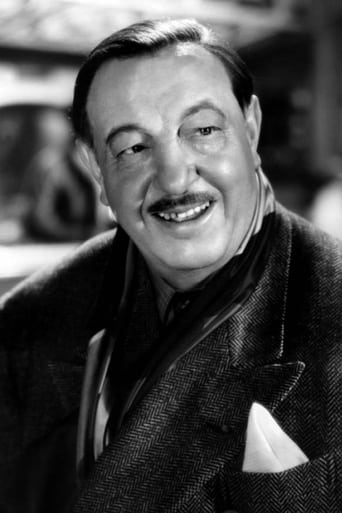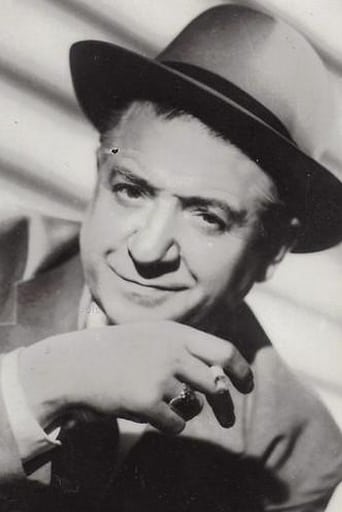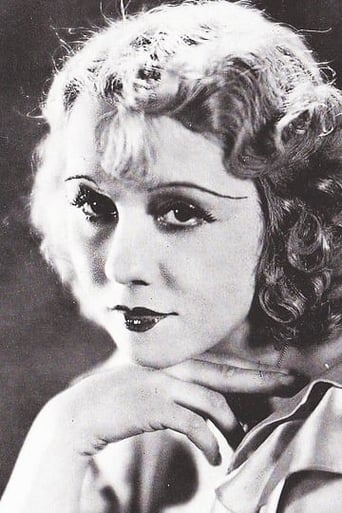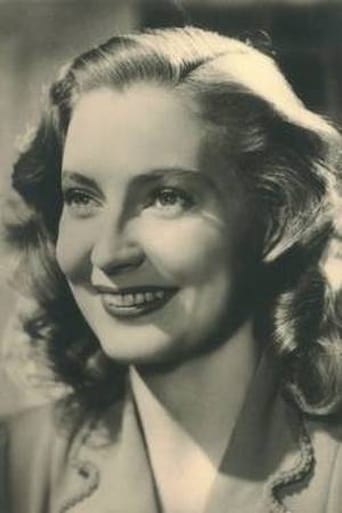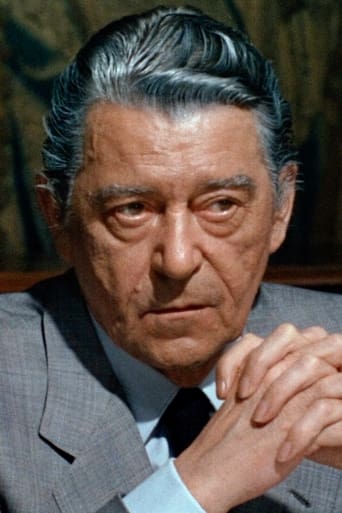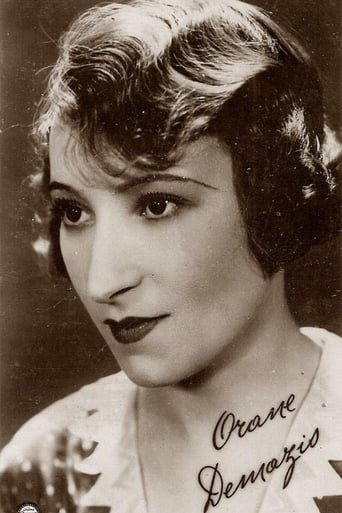Greenes
Please don't spend money on this.
Smartorhypo
Highly Overrated But Still Good
Sexyloutak
Absolutely the worst movie.
Rio Hayward
All of these films share one commonality, that being a kind of emotional center that humanizes a cast of monsters.
Catrician
Length seems to equate to epic in the general sense of the word nowadays. Cameron's "Avatar" went from being an Oscar worthy sci-fi blockbuster to an Oscar worthy sci-fi epic by upping the length. However, in the case of Avatar, the length doesn't do a huge amount for it, other than finding more crevices to squeeze in the best CGI ever seen in film. There are plenty more examples, too. Wyler's "Ben-Hur" is a fantastic example of an epic that exists for the sake of being an epic. Sure there are some breathtaking scenes throughout (notably, you guessed it, the spectacular chariot scene finish), but it tends to drag in numerous places; and that's coming from someone who's infatuated with Tarr's seven and a half hour "Satantango". Or perhaps look at Jackson's "Lord of the Rings" trilogy, which could have been a solid two hours shorter in total at minimum, or Cameron's "Titanic", whose extra length seemed to only provide extra melodrama and sentimentalism. This begs the question, how does one pull of this "epic" film correctly?Sometimes, it's by sheer quality and scale. Kubrick's "Barry Lyndon" accomplishes this and also is one of the hardest hitting emotional movies I've seen in a while, and I had no actual interest in watching it in the first place. I had a similar experience with Fleming's "Gone With the Wind", which I also loved to death. It seems at this point that the word "epic", or any film with a running time above two and a half or three hours seems to have a few key ingredients: grande scale, impeccable acting, but emotionally aloof and formulaic, and even the former two masterpieces sometimes have these issues in them. How does Bernard overcome this? What makes his Les Miserables my second favourite film of all time (behind De Sica's "Bicycle Thieves")? The reason is that he has mastered the art of emotional power and comprised it into this four-and-a-half hour magnum opus of French film, while also displaying his immense talent for set production, direction of acting, his technical capabilities, mastery of a myriad of genres...For those of you unfamiliar with the Les Miserables story (the extended and "real" one I mean, not the watered down Hooper pretty musical version), it goes a little something like this: Jean Valjean is released from prison after a number of years due to his criminal activity within the government's control. Additionally, he now must carry around a voucher explaining that he is a dangerous man and said voucher must be stamped if he is to leave a certain boundary. Due to this, he has grown to be very bitter. A preacher assists him and gives him a quick start to help his life a bit, but Valjean takes advantage of his hospitality and steals from him. When he is arrested, the preacher simply insists that it was a "gift" and that Valjean forgot the rest of his gifts, in this case, two sterling silver candle-holders. It is in this sequence that the audience can truly see the beauty of humanity, and Bernard is one of the few to have captured this, arguably one of the first, and he is able to do it without melodrama, over indulgence on sentimentality, or even music. Valjean's life intertwines with a number of other stories, including the saving of an orphan, in addition to numerous others, as he vows to do the best that he possibly can in life after this simple hospitality. Some scenes in the film are technically brilliant, and criminally overlooked given the time of the production. The steady-cam use in the riot scenes in part three are incredibly ahead of their time, and Bernard's juxtaposition of multiple scenarios in part one (with Valjean's confession) is a direct homage to Griffith's "Intolerance" and Bernard does it better, giving Hitchcock a run for his money as "master of suspense". The power packed in the last half hour is stronger than that of many directors' entire career, and a great portion of this is due to the outstanding performance by Harry Baur as Jean Valjean, who makes Hugh Jackman's performance look like it originated from a B-movie. As of the time of this writing, the film has 814 votes on IMDb. It's a tragedy how underseen this movie is, but it has garnered an almost unanimous acclaim among the few that have. The story never lags, never becomes boring, and I was literally mesmerized the whole time, never knowing the outcome of the next chapter. It's not a philosophical film, nor does it have a very complex message, but its power comes from its simplicity, it's perfection, its entertainment. It is the ultimate film, and I long for the day that another director is able to make something anywhere close to it.Rating: 10/10
Robert J. Maxwell
If they made any more versions of this famous Victor Hugo tale I think I'd go mad and rush around the streets spouting French gibberish and tearing everything apart in a frantic search for cider apples or a loaf of bread. It's all reminiscent of Charles Dickens in that it's a sketch -- a long sketch -- of what can happen to you when you don't have enough money for fundamental things.Well, briefly, Jean Valjean (Baur) is a convict released after 19 years in prison for stealing bread and trying to escape. He's a real slob. When a friendly bishop invites him to a meal and puts him up for the night, he steals off with the silverware.But he reforms, after violating his parole. He works in a glass factory, discovers a new means of producing cheap glass, prospers, and becomes a good man who is finally elected mayor. The problem is that the local chief of police, Inspector Javert (Vanel), thinks he recognizes the new mayor and job-creator-in-chief as the escaped prisoner, Jean Valjean. The inspector used to be a corrections officer at Valjean's prison and he is, of course, right, though he can't prove it.In the end, Valjean gives up his real identity and loses his status in order to save an innocent man who has been mistakenly identified as Valjean. After exposing himself in court, Valjean escapes with a little orphan girl he has more or less adopted and takes off for the city.What follows is almost an entirely different story, connected to the first part by the thread of Inspector Javert's obsessive pursuit of Valjean and his little girl, Cosette. Towards the end there is a revolution and some exciting action, including a scenic tour of the city's cloaca maxima. If Vienna in 1948 had had such a filthy sewer, not even Harry Lime would have used it as an escape route. And there is a heart-tugging scene in which Valjean stands out on the street, listening to the music, as the aristos, now including his beloved daughter Cosette, dance the cachelot or the cucaracha or whatever it is.I haven't seen all the other versions of "Les Miserables." Compared to the two I remember best -- the versions with Frederic March and Liam Neeson -- this evidently sticks closest to the original novel. The makes it quite a longie, almost four hours.As much as I hate to use the word in any assessment of a film, especially a French film, this one is pretty "arty" for its time, 1934. The sets are very well done. The direction is as good as can be expected. The movie moves at a good pace. At dramatic moments the camera is delicately tilted from the horizontal. Baur is good as Jean Valjean. As the dying girl Fantine, Florel is almost unbearably extravagant in every move and utterance. Vanel's Javert is icier than most or, one might argue, wooden. I preferred Geoffrey Rush in the Liam Neeson version. Rush was deliciously neurotic.You know, though, that though I've made some fun of this movie, it was light years ahead of most of the features being ground out in Hollywood.
Jonathan Russell
I came across this by accident, broadcast over 3 nights on TV - I recorded it, and watched the whole thing without being able to leave the sofa. It is the best movie I've ever seen.4½ hours long, subtitled black-and-white Victor Hugo epic doesn't sound appealing, or only to 'art house' fans, but not so ... if you ever get a chance to see it, do!The acting is tremendous, as is the cinematography. Certain visual moments are forever imprinted on my mind, such as the moment when a helping hand comes out of nowhere to help the collapsed Cosette, or the moment when a nun, sworn to always tell the truth, lies to protect the protagonist, Jean Valjean.It is a superb retelling, and remains the best version of this classic novel. What makes it even more poignant is how themes in the movie were reflected in the real lives of the actors. Harry Baur, who plays the lead - a man falsely imprisoned and whom is relentless pursued through the film - lost his life a few years later at the hand of the Gestapo for being suspected of aiding the resistance, and Gaby Triquet (the young Cosette) was shamed and blacklisted for having an affair with a German soldier and never worked again.I've seen a few 1930s features, and while enjoying them, would not expect others to sit through them. Not this! It is everything a good movie is about - superbly crafted, mesmerising to watch, and leaves you seeing the world slightly differently afterwards. I've never seen better.
Rocco Gioffre
This film is, beyond any comparison, the most perfect version of Victor Hugo's timeless classic - BAR NONE! I've only seen this version once at a UCLA French film retrospective, but I was absolutely floored. If you ever get a chance to see this movie, do not miss it! Harry Baur's performance as Jean Valjean is magnificent. I'd love to see this one again. I wish it was available in any form DVD, VHS ... anything.

